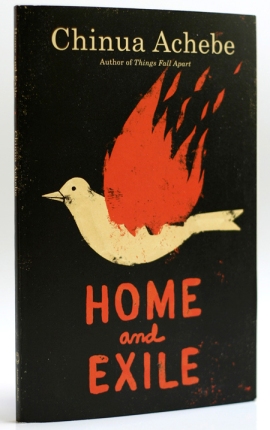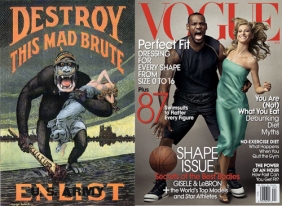I do not entertain delusions of grandeur. I know I don’t speak for all black people in this country but perhaps my approach to the N-word might help some people understand how complex the situation is on race.
I hate writing about race but its an integral part of my life. I would rather lampoon and make fun of things. I generally save all my racially oriented comments for time like these when someone makes a gigantic fuck up publicly like Ms Paula Deen. I’m using this opportunity to get all my thoughts and comments on racism out and into the public eye (public the 10 non family members that read me consistently)
The Star of the Show: The N-word
The word might be one of the most polarizing words in American History. It has been around for a long time. It was always a hateful word to me, but I feel it was after the civil war that more hate and vitriol were pumped into it sociologically . At different times in history the N-word has had different connotations. Take a look at this that I lifted from WIKI:
In the Colonial America of 1619, John Rolfe used negars in describing the African slaves shipped to the Virginia colony. Later American English spellings, neger and neggar, prevailed in a northern colony, New York under the Dutch, and in metropolitan Philadelphia’s Moravian and Pennsylvania Dutch communities; the African Burial Ground in New York City originally was known by the Dutch name “Begraafplaats van de Neger” (Cemetery of the Negro); Nineteenth-century English (language) literature features usages of nigger without racist connotation, e.g. the Joseph Conrad novella The Nigger of the ‘Narcissus’ (1897). During the fur trade of the early 1800s to the late 1840s in the Western United States, the word was spelled “niggur”, and is often recorded in literature of the time.
The N-word clearly took on a much more negative and derogatory connotation. it became one tool in an arsenal of tools to subjugate a people by force.
Getting into It
I would like to share an observation. The want of one particular group to exert power and control over another group is at the basis of all discrimination. Exploiting racial differences is one method employed to asserts one’s will over a people. Language and its use to establish a particular false narrative are one of the core tools used to do this.
 In Achebe’s book Home and Exile he describes early literary depiction of Africa as tool used my Europeans to justify their exploitation of the people and resources of Africa. About a few hundred years worth of propaganda creation when into this enterprise. The word nigger especially in North America in particular the USA became a tool of propaganda. Because we as a nation have not come to terms with what we have done to other minorities and what we are doing in the world currently things this topic is a sore point but I give you two solid reasons why the N word is hurtful nowadays.
In Achebe’s book Home and Exile he describes early literary depiction of Africa as tool used my Europeans to justify their exploitation of the people and resources of Africa. About a few hundred years worth of propaganda creation when into this enterprise. The word nigger especially in North America in particular the USA became a tool of propaganda. Because we as a nation have not come to terms with what we have done to other minorities and what we are doing in the world currently things this topic is a sore point but I give you two solid reasons why the N word is hurtful nowadays.
- Racism still exists. By racism here I don’t mean people hating you just because of the color of your skin, I mean institutional social and sometimes legal, economical practices that can exclude one race or group of people from other. I also mean negative media depiction and portrayal.
- Just because we have a Mulatto president and we have MLK day off doesn’t mean that everything is OK. White man with all the same credentials I have are not on equal standing.
Formal racial discrimination was largely banned in the mid-20th century, and came to be perceived as socially unacceptable and/or morally repugnant as well, yet racial politics remain a major phenomenon. Historical racism continues to be reflected in socioeconomic inequality, and has taken on more modern, indirect forms of expression, most prevalently symbolic racism. Racial stratification continues to occur in employment, housing, education, lending, and government.
While substantial gains were made in the succeeding decades through middle class advancement and public employment, black poverty and lack of education deepened in the context of de-industrialization. Prejudice, discrimination, and institutional racism (see below) continued to affect African Americans.
EXAMPLE: From 1981 to 1997, the United States Department of Agriculture discriminated against tens of thousands of African American farmers, denying loans provided to white farmers in similar circumstances. The discrimination was the subject of the Pigford v. Glickman lawsuit brought by members of the National Black Farmers Association, which resulted in two settlement agreements of $1.25 billion in 1999 and of $1.15 billion in 2009.
Historical Context
 I was walking through time square and it was really crowded and packed and I bumped into this decent looking woman on the phone, and she was really into her conversation and not really paying attention as she was crossing 8th avenue as we bumped into each other before I could say sorry she exclaimed ” Dammit some nigger just bumped into me” She then looked me in the eye and realized that what she thought in her head came out of her mouth. I had shit to do so I walked onwards and I guess she scurried onwards before her thoughts that I was going to rape her.
I was walking through time square and it was really crowded and packed and I bumped into this decent looking woman on the phone, and she was really into her conversation and not really paying attention as she was crossing 8th avenue as we bumped into each other before I could say sorry she exclaimed ” Dammit some nigger just bumped into me” She then looked me in the eye and realized that what she thought in her head came out of her mouth. I had shit to do so I walked onwards and I guess she scurried onwards before her thoughts that I was going to rape her.
Once that word is said it brings with it an immense historical context. Years of suffering of my parents, grand parents, great grand parents, those tails of suffering get passed on. No matter how much time has passed you cannot separate a person from his historical context. The American media propaganda (I’m sure the same is done throughout Western Europe as well) machine seeks to always remove context from acts of America foreign policy, racial issues and many other things to get us to be good workers and not question things.
(more to come)
Related articles
- Paula Deen and the word “Nigger” (sacratomatovillepost.com)
- Bill Maher Calls Out Scalia, Trump and Palin For Being More Racist Than Paula Deen (politicususa.com)
- Paula Deen Saying “Nigger” Isn’t The Real Issue (ashy2classy.net)
- How Trayvon Martin Put Race Into This… (rapgenius.com)
- The Post- Racial Pitch (matthewembremner.com)
- Post Racial Pitch (matthewbremner28.wordpress.com)
- Paula Deen and the word Nigger (tomliberman.wordpress.com)


As a white man there is nothing that I can relate to as far as the history of that word.Any white person who says they do is just plain ignorant. Unfortunately unlike Dr Suess’ Sneetches, who learned that it didn’t matter what you looked like on the outside, I fear we will always have this problem unless we were all mulatto…even then it’s in our nature to knock each other down for reason or another.
LikeLike
Im with Chris, I think we will always have this problem, but I believe that there are things which can be improved. I wonder how come it is in our nature to be so hostile to one another? I am gonna write something about this in the days to come hope you are chilling
LikeLike
Like a villain
LikeLike
I know this is a difficult subject for you, MrMary. Hopefully you’re not pushing yourself to talk about it more than is comfortable and safe.
That said, I think this is an incredibly important topic…especially in an era where the vast majority of (presumably white) Americans believe racism is a thing of the past. The small amount who DO realize it still exists belong in 2 camps: Those of us who speak out against it when we hear/see it, and those who are actually for it, like the morons on Stormfront. By the way, if you’ve never been to their site…don’t. Reading even a single sentence will make you want to punch your computer and set it on fire.
The question that is always in my mind is: How can we progress from this point? What can we as a people do to accept the minor differences between ethnic groups while still acknowledging that we are the HUMAN race? A question for the ages, it seems…
LikeLike
Hey TarnZs
I feel free. So far thanks to you Daan and a few others I feel comfortable. I feel like this is a great environment to talk. I feel at ease. It’s not often that that happens and I want to take advantage to share some thoughts. I am going to write a follow up post this week where I tackle how can we have a conversation about this online and how can we make progress from here. I hope you will like it. In the meanwhile hope you are well
Dave
LikeLike
That’s horrible that someone would just say stuff like ‘some nigger just bumped into me’ – evidently racism is dug in pretty deep. I can understand why anyone would find that deeply offensive.
LikeLike
Racism is deeply embedded in the American psyche, but as long as guys in sheets aren’t looking for me or coming to my door I am cool. I think the more incidents like the Paula Deen thing happen the more we are forced to take our heads out of the sand about it.
LikeLike
All I know is I literally cannot say that word. It will not come out of my mouth. I find it too repugnant to even think most of the time. Thanks for filling me in on some of the historical context, because I didn’t know that stuff.
LikeLike
Hey purplemary54,
The word is a hurtful word, but there is so much history behind how it is used and the many sociological contexts. I think that the more I educate myself the more I can understand the current situation. I learned a lot in writing this post, it’s amazing how much of american history is not known.
i hope you are well and enjoying your wednesday
Dave
LikeLike